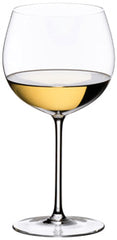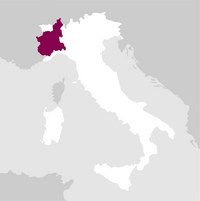Description
Still white wine from Piedmont, 13.5% ABV, produced by Vietti. A Derthona made from Timorasso grapes, a native grape variety that best expresses the characteristics of the terroir. Fermentation, lasting approximately four weeks, takes place partly in ceramic, partly in wooden vats, and partly in stainless steel. Malolactic fermentation is not performed. Aged for a total of 10 months in ceramic, wooden vats, and stainless steel, in contact with the fine lees, kept in suspension with repeated batonnage. On the nose, fruity aromas reminiscent of pear and peach, along with floral notes of acacia blossom and hawthorn, along with a distinctive honey note. On the palate, it is dry, warm, and smooth, very balanced; it has no sharp edges, and the finish offers a distinct acidity that lends great length and persistence to the palate.
Details

Perfume

Color

Taste
Serve at:
12 - 14 °C.
Longevity:
05 - 10 years

Pairings
- Start up year: 1873
- Oenologist: Eugenio Palumbo
- Bottles produced: 600.000
- Hectares: 75
We train our expertise and winemakers’ sensitivity, while looking after every detail. That’s the style that makes our winery stand out.
We have always opted for the most natural and artisanal processing techniques. This commitment stems from continuous observation, patient waiting, and from the respect for the natural cycle followed by our plants. We know every vineyard, observe each of them in their unique growing season, and respect them.
We respect our land, the techniques, and the ancient knowledge that, along with continuous training, make our wine unique. We take care of the work that we do, aligned with the values of respect, inclusivity, fairness, and social well-being.
This is part of our philosophy and approach because what makes our wine great is the complete respect towards our territory. While working, we aim to reduce the interventions on the vineyard, and we use natural resources with care and consideration. Read more


| Name | Vietti Timorasso Derthona 2023 |
|---|---|
| Type | White green still |
| Denomination | Colli Tortonesi DOC |
| Vintage | 2023 |
| Size | 0,75 l |
| Alcohol content | 13.5% by volume |
| Grape varieties | 100% Timorasso |
| Country | Italy |
| Region | Piedmont |
| Vendor | Vietti |
| Origin | The grapes come from several vineyards located in the municipality of Monleale |
| Climate | Exposure: South-East and South-West. |
| Soil composition | The soil is calcareous-clayey. |
| Harvest | Manual, mid-September. |
| Wine making | The fermentation, lasting about 4 weeks, is carried out partly in ceramic, partly in wooden vats and partly in steel. Malolactic fermentation is not carried out. |
| Aging | 10 months in total between ceramic, wooden vats and steel, in contact with the fine lees kept in suspension with repeated batonnage. |
| Allergens | Contains sulphites |




